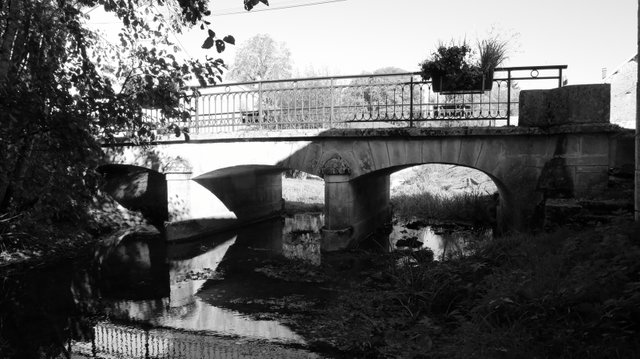[Leprechaun bridge] [3]
The Farfadet of Provence, Poitou and Vendée (it is then called fradet) has an Auvergne equivalence that we call Fol. He is then very close to the Auvergne elf par excellence, the Drac. But he has the particularity of living on the banks of the Allier river. As he watched the passages over the river, it was traditional to offer him for protection, at the foot of a small scree, nuts or apples. This is the case near the ferries then the bridges crossing this river.
Source: https://fr.wikipedia.org/wiki/Farfadet_(cr%C3%A9ature)
“The valley of the Égray, around Germond, in Deux-Sèvres, was at the end of the nineteenth century, considered as the exclusive domain of leprechauns, who did not like to be disturbed by women who gathered to spin in caves or quarries.
One evening when they were returning to the village, they saw leprechauns driving up the slope of the road at astonishing speed in an enormous wagon with squeaky wheels. One of the spinners had the idea of making the sign of the cross, which had the effect of making both leprechauns and cart disappear.
Like leprechauns, with whom they are sometimes confused, leprechauns readily take care of horses, whose manes they curl and entangle, and are generally helpful. It is difficult to describe them because they remain mostly invisible, unless they take on animal appearances.
Brian Froud and Alan Lee have nevertheless observed them: “The leprechaun is a wrinkled, crumpled little man with a brownish complexion, half a meter high, who walks around naked or dressed in brown rags. Mountain leprechauns have neither fingers nor toes, and plains leprechauns lack noses. "
If in the wild, the leprechaun holds its residence in some molehill in the forest, it sometimes plays the role of a serving spirit when it attaches itself to a house or a farm. He then watches over the herds and the keeping of the household, harvests, threshes and mows the wheat, and completes the tasks that the servants did not have time to finish - not without having punished the latter for their laziness or their negligence by hitting them with a volley of sticks.
For all these services, the leprechaun asks only insignificant wages: “In exchange for his trouble, the leprechaun wants nothing more than a bowl of cream or good milk with a honey cake. Want to give him more, he crumples and goes away, which often happens when the clumsy generosity of the master of the house makes him leave new clothes for the leprechaun. "
He then exclaims:
What have we got here, Chanvri, Chanvrai!
No more jumping here, no more walking. "
All original photos @Cyboule.
